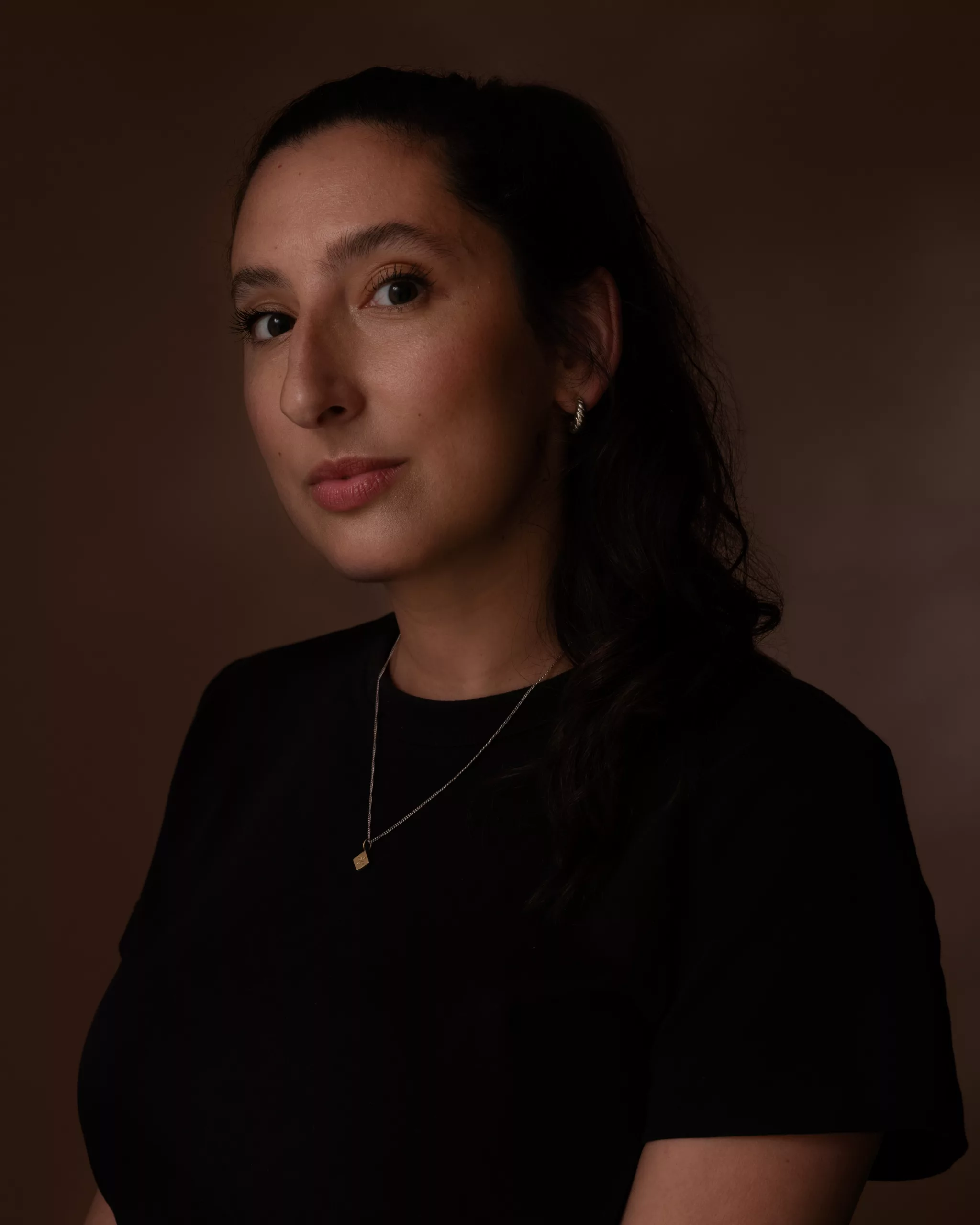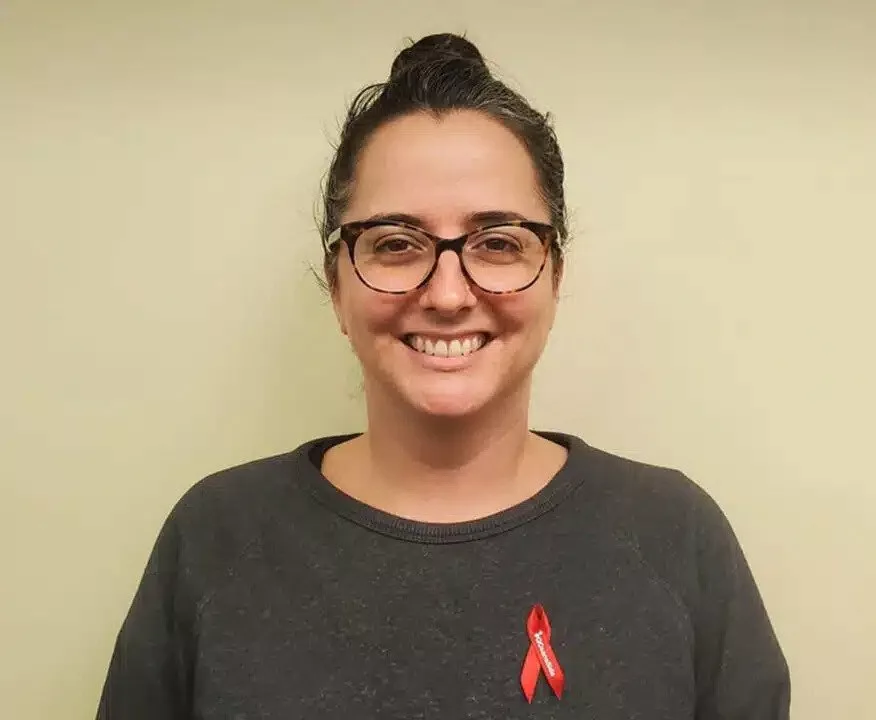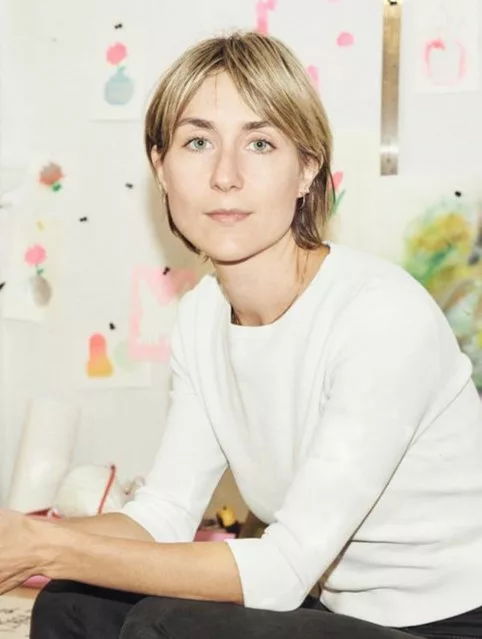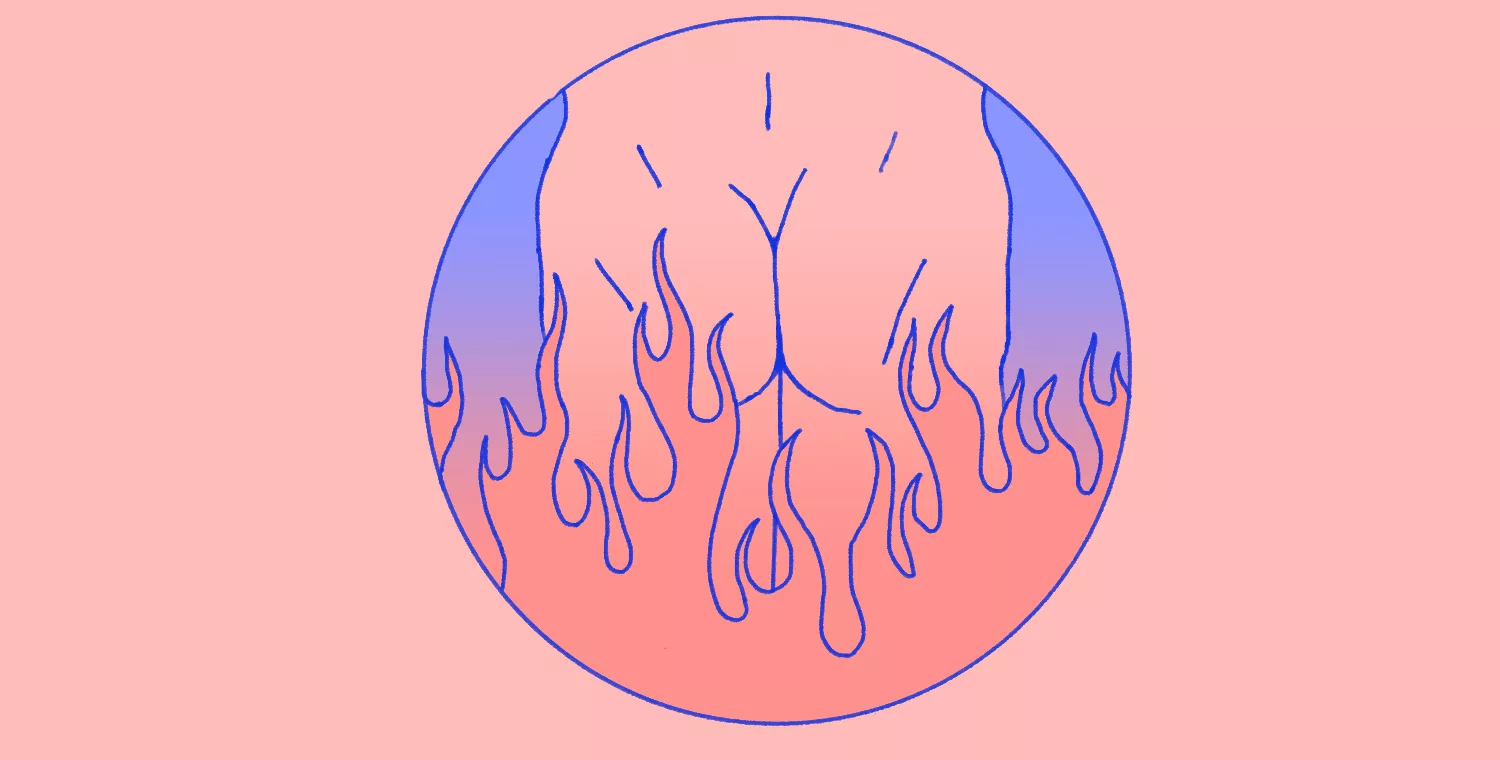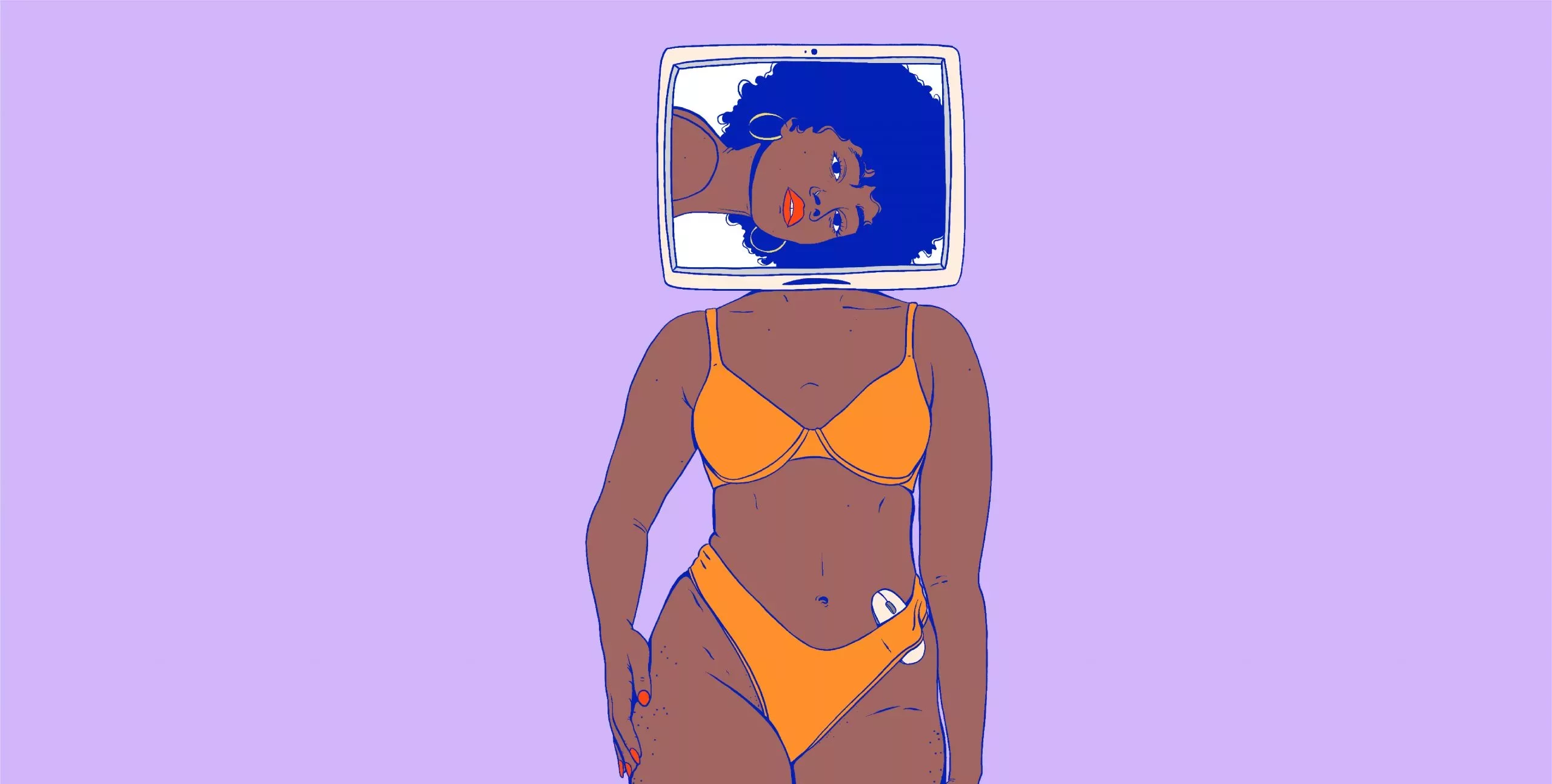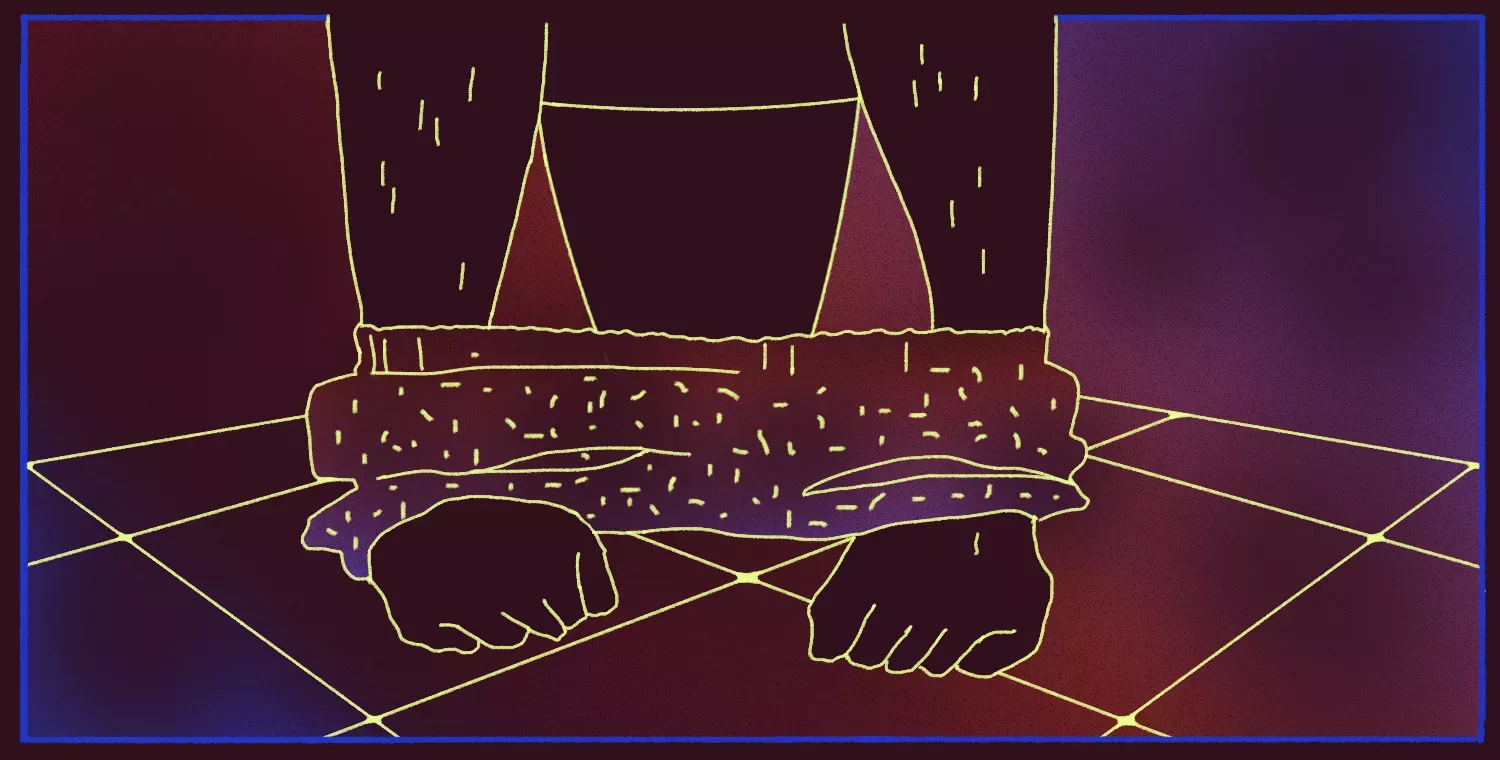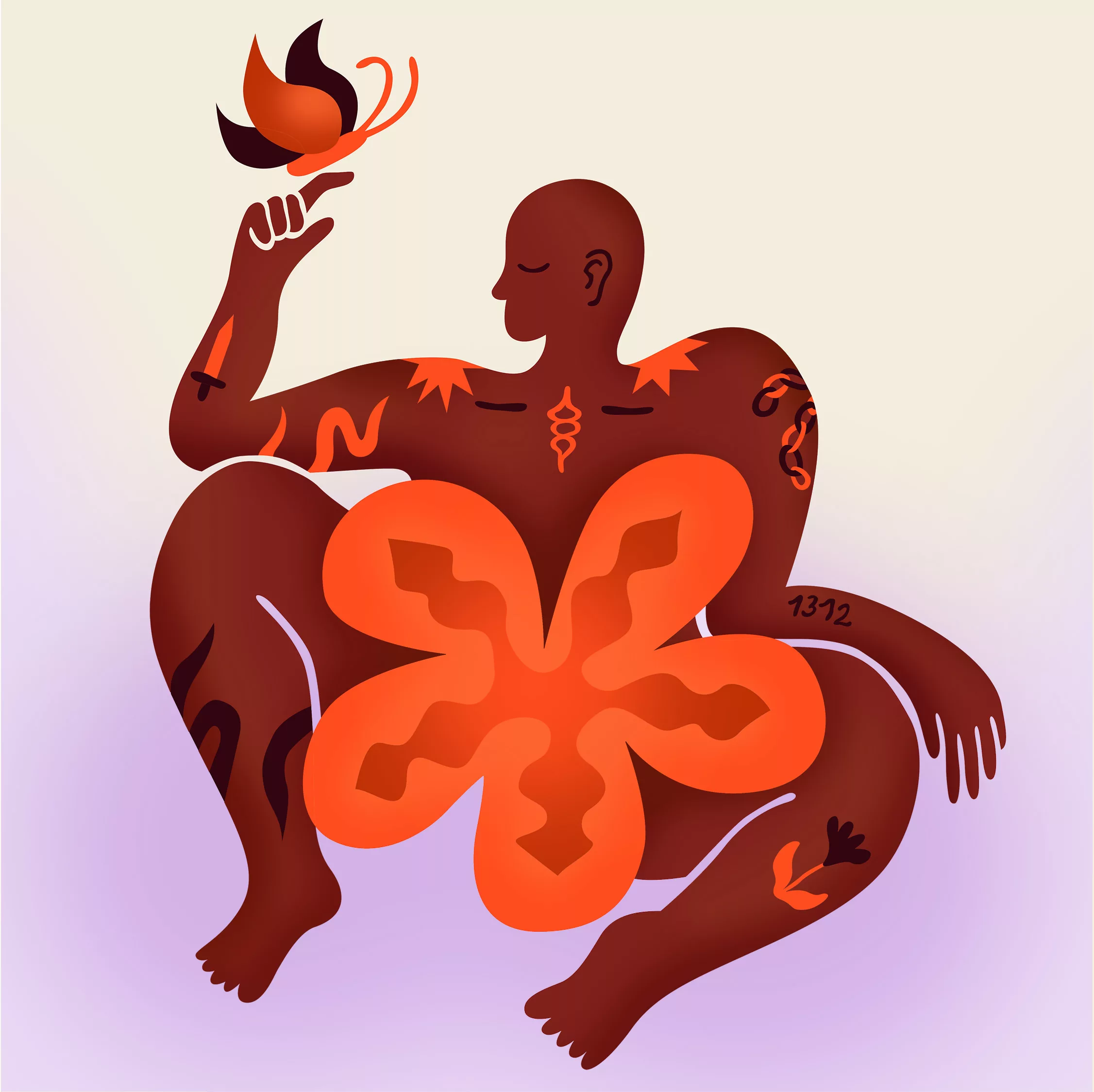Your cart is currently empty!
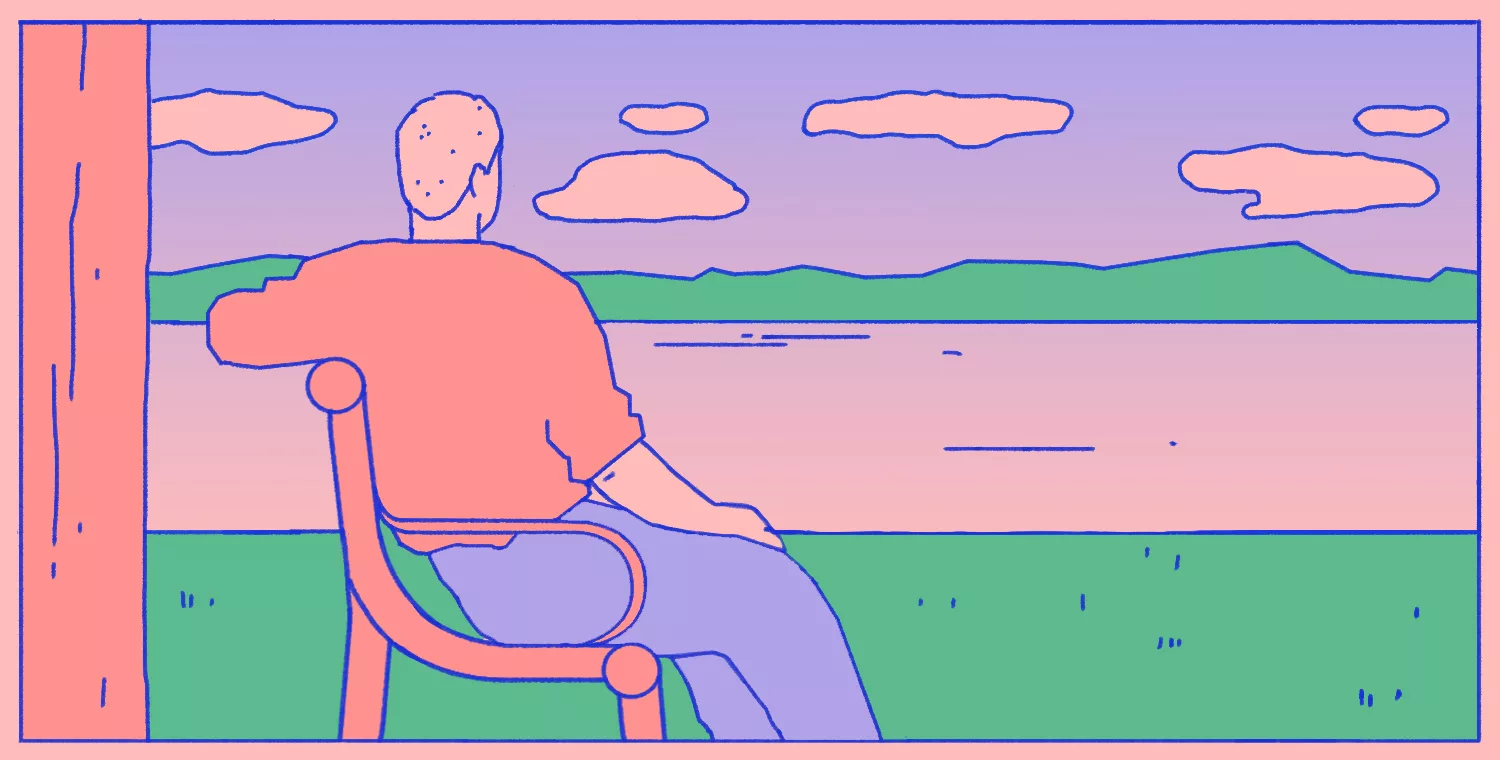
When the Secret Is Heavier Than the Diagnosis: The Testimonial of an HIV-Positive Person
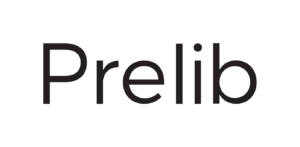
This article is presented by Prelib.
In the spring, Club Sexu published a call for testimonials from people living with HIV. A young man contacted us, saying that he humbly wanted to share his story with us.
A few days later, I spoke with him on the phone. Our conversation lasted over an hour. I don’t know his name, where he lives, what he does for a living, nor what he looks like. I do know, however, that we experienced a profound, human moment together. We had a moving, sensitive, and emotional conversation, which will remain in my memories for a long time to come.
Here are some fragments of our conversation.
Jonathan* is in his mid-thirties. He was diagnosed with HIV in 2005 when he was nearly 20 years old.
After first having a brief, off-the-record exchange with him, I began this second conversation by asking him to tell me about the moment when he first got the news. His tone is calm and controlled, yet restless and emotional. I listen to him carefully, honoured that he is telling me about this life experience, which he had seldom spoken about before now.
“It all started with a simple round of routine screening tests,” »recalls Jonathan. He is focused and precise. “I had only been sexually active as a gay man for a few months at that point. I had only just started to meet other men. I was feeling my way, one step at a time. The test for chlamydia had come back positive. I took that diagnosis as a warning: I said to myself ‘I have to be careful, and take charge of my sexual health. I need to be vigilant.’
During that appointment, I was also tested for HIV, but the results took longer to come back. After being treated for chlamydia, the doctor called me back in. He wanted to see me in his office. I remember that it was the day after Valentine’s Day. I find that to be a really powerful symbol.”
“I remember being so shocked upon hearing the news that I instantly started bleeding from my nose. It was just pouring. I was handed a box of tissues so I could wipe my face. There was this blood flowing out of my body, which I suddenly saw as extremely dangerous. I don’t remember how I got home.”
Laïma: My god, it’s so symbolically powerful; it’s like a scene out of a movie.
The conversation has been under way for only 10 minutes, and I am already extremely moved by Jonathan’s carefully weighed words. I can feel the emotion that underlies them. I stay focused and carry on.
Laïma: If we go back to that time of your life, what do you experience, what do you feel, what do you see?
“I remember having experienced lots of loneliness and sadness,” » he says, his voice filled with vulnerability. “In the weeks following the diagnosis, the clinic put me in contact with an HIV-positive person who was older than me. We met two or three times, during which he told me about his experience, and we discussed what it was going to be like for me in the upcoming years. I was happy to see someone who was alive, happy, and fulfilled.
“However, that’s also when I started to fear my body for the first time in my life—up until very recently.”
Laïma: And I imagine that being afraid of the body in which we “live” every day must be extremely overwhelming.
“You have no idea,” Jonathan immediately replies. “I’m learning to let go of this fear; of my body as a source of danger. I’ve been on medications for over ten years and I am responding very well to them. My viral load has been undetectable since the beginning of treatment. Note that the doctors waited a few years before treating me: that’s how things were at the time.”
Laïma: In the first years following your diagnosis, before you started taking medication, what was your life like on a physical level?
“I remember that, during the holidays, just before I received my diagnosis, I felt extremely tired. I had never felt that tired.
Also, while my skin is naturally fragile already, I had shingles twice, and I was more prone to fungal and skin infections. I got impetigo. Daycare and old people illnesses,” adds Jonathan, laughing heartily for the first time since the beginning of our exchange. I join in with bursts of laughter. It makes us both feel good. He resumes.
“I also remember that, at that time, I still had acne. So I had lesions on my face and I carried band-aids with me wherever I went, almost obsessively.”
“Even though my doctor at the time told me that it wasn’t necessary, I also always had bleach on hand. I disinfected everything. I was obsessed with the risk of spreading the virus.”
“At some point, my CD4s (one of the immune system’s warriors) dropped, and I found myself with a count that was too low. There was a risk of ending up with a count of less than 300, which can be dangerous, so it was about time I started taking medication.”
Laïma: And on an interpersonal level?
“At the time I received my diagnosis, I had just started professional training and I was getting ready to travel for my career. I dreamed of leaving: I wanted to expand my horizons, discover the world, and be free. When the diagnosis reared its ugly head, I found myself having to undergo several medical check-ups and was faced with the obligation to reveal my condition to insurance companies and foreign governments. All of this made me extremely afraid, and I wasn’t able to deal with the overload of new information. So, I canceled everything. And that’s when everything—everything—seemed to be falling apart.”
Jonathan pauses. I let the silence unfold at the end of the line. Sobs echo through the handset.
“I’m sorry,” says Jonathan softly, after a few seconds.
“That’s so okay, take all the time you need,” I say kindly, tearing up slightly. “I’m giving you a hug in my head, I don’t know if you can feel it…”
“Yes, I can feel it.” His reply is almost inaudible. He takes a breath, then resumes with emotion in his voice.
“It was as if my future had just disappeared. It was like that for several years. Before my diagnosis, I had a vision of a future so full of potential and possibilities. And suddenly, that vision disappeared. And I felt that way until only recently. In fact, I’m only just beginning to allow myself to entertain the idea of building a future. That said, all of this grounded me in the present moment, forcing me, so to speak, to savour every second.”
Laïma: That’s so true. It’s often in hardship that we become aware of the importance of the present moment. And what about your love and sex life at that time?
“At first, I thought I would never have a love and sex life again,” Jonathan recalls. I thought that was over for me. But soon enough, I met someone with whom I remained in love for several years. When we had sex, we always used condoms, and we were extremely rigorous about it. I remember that once, before I was on medication, the condom broke and we were really worried since my viral load was contagious at the time. We immediately went to the clinic and my partner was prescribed post-exposure prophylaxis (PEP).
“It was during that relationship that I started taking my medication. That said, my fear of transmitting the virus hadn’t diminished. I learned a lot, I read a lot about HIV, and my boyfriend was very supportive. Slowly, we learned to live with it together. It reassured me that he was so involved. Even today, I am very grateful. We were a team and he played a very important role in this pivotal period of my life.”
Laïma: After that relationship, you were single for a while. How was it? Were you open about your HIV status?
“I didn’t meet a lot of people while I was single,” admits Jonathan. “I have thoroughly educated myself on HIV status disclosure protocols—on both ethical and legal levels. Since my viral load was undetectable, I didn’t have to tell my partners. Most of the time, we didn’t have penetrative sex, but when we did, we consistently used a condom. I made sure that I didn’t engage in any risky behaviour. Despite everything, I was always in an analytical mode, constantly observing myself during sex. I never really felt free, because I knew there was a part of me that couldn’t let go. I felt responsible for my partners’ health.”
“For people who know they have HIV and have a detectable viral load, I find it deeply irresponsible not to disclose it, whether or not they are having safe sex. When it comes to willful neglect, it shocks me. I call for transparency, accountability, and honesty, as much as possible.”
“Since my viral load was undetectable, I was waiting to find someone I could trust. In my circle, very few people knew about my status. I had told a very close friend (I told her because I had accidentally cut myself at her place), my ex-boyfriend, and the people at the clinic. That was it. I made sure to keep it as secret as possible.”
Laïma: When you finally met a partner you trusted, how did the disclosure go?
“I met a guy, we saw each other a few times, but we didn’t have penetrative sex,” says Jonathan, asking me if that sort of thing was “too much information.” I assure him that he can give me all the details he deems relevant.
“So we’re at his house in his kitchen, and I tell him I want to talk to him about something. I stumble and beat around the bush. Even with all the things left unsaid, he ended up understanding… Against all odds, he didn’t run away. It greatly relieved me and it meant above all that I could allow myself to get attached to someone.
“Compared to my first boyfriend, he wasn’t as motivated to learn about HIV-related issues, so I was left carrying most of the burden on my shoulders. Luckily, the people at the clinic were very reassuring and they looked after us really well. Of course, I didn’t share my toothbrush or my razors with my partner, but we felt safe. Over time, I felt more and more confident and learned to cope with the virus.”
“Maintaining a relationship with HIV while being in a couple isn’t easy. I wanted to give space to that, but without letting it define me. I think I would have liked that partner to be more involved and to have him take on a bit more responsibility for our health.”
Laïma: Do you have an example?
“Yeah, for example, I was the one who reminded him to go get tested once or twice a year, to be sure that everything was fine. I felt that it wasn’t always easy to talk about this—all the issues, implications, and concerns it can generate. Today, these are discussions that I have much more openly, and I feel that I’m not the only one responsible for our health.”
Laïma: Right, you’re no longer with that partner today. You’re in a new relationship. How did disclosure go with your new partner?
“It was also in a kitchen,” realizes Jonathan, before bursting into laughter.
Laïma: Kitchen parties are very Quebecois!
Our laughter lightens the mood. Jonathan resumes his story.
“I remember that it was really hot, that I was extremely tense, and that I was crying a lot. We were very attracted to each other and I waited to see if he would be able to hear what I had to say…
“I was terrified, but I told myself that I shouldn’t let my fear stop myself from living fully. It was a new step in my self-acceptance.”
Laïma: I’d like to hear what you have to say about the taboo, prejudice, and stigma that surrounds HIV and HIV-positive people. How do you perceive all this, and how does it manifest in your life?
“That’s a very good question,” says Jonathan after pondering for a moment. “I think the idea that we’re responsible for our own fate is a very heavy prejudice to bear. As if HIV-positive people had asked for it. On a personal level, I’m still trying to deconstruct the idea that HIV-positive people don’t deserve compassion because they’ve ‘asked for it’.”
Laïma: I understand what you mean. It comes down to classic victim blaming.
“Yes, exactly. If we think of the AIDS crisis in the 1980s, gay people were much more stigmatized and AIDS was immediately associated with death. We’ve seen so many images of transformed and emaciated bodies. And I carry these images of sick bodies within me. I try to erase them from my mind, because they make me anxious about growing old, as though I have the impression that I’d get closer to that with age. I try to free myself from these images of suffering and dying bodies. I’d like it if people separated HIV from AIDS and death. Of course, if HIV isn’t managed, it does lead to AIDS, but there are so many other trajectories.
“I sometimes talk about HIV with people who don’t know about my situation, and most say something like: ‘Yes, but today, we can live well with HIV.’ When I hear that, I feel free and I realize that I am at least partly responsible for making myself keep secrets about my condition and for isolating myself from people who could have given me support. I realize that I’ve internalized a lot of HIV stigma.
“Also, I watched the series Si on s’aimait and, in the latest season, there’s an HIV-positive man among the participants, and he talks about it openly. That inspired me to contact you. I still find it very difficult to conceive that people around me can have this information about me and not label me as defective, dangerous, or contagious.
“At the same time, I think that a lot more education is needed to eradicate the fear of HIV-positive people.
“I had sometimes found myself around people who were talking about HIV, and I always remained silent when that happened. I blame myself because I missed a lot of opportunities to, humbly, educate people.
“And all of these assumptions and preconceptions have very real implications. For instance, it has a huge impact on access to life insurance: these processes are very complicated.”
Laïma: Your partners, your close friend, and your healthcare providers are aware of your condition. Over time, did you tell more people about it?
“Yes, I’ve started telling some of my friends,” Jonathan says, obviously relieved to have come this far in his life. “And last fall, I told my mother. There was a lot of crying, and a lot of love. I haven’t told my dad yet. He’s a very emotional man and I’m afraid of the shock that such an announcement could cause. For a long time I refused to tell my parents about it because I know they love me very much and I didn’t want them to worry and feel sad. I think what my mother found most difficult was realizing that I had kept this secret for so long.
“Fifteen years,” adds Jonathan. His voice reveals all the emotions that were pent up due to that secret. “Having loved ones share my secret frees me from a huge weight,” he says in the same breath. It also means that, in certain contexts, I don’t feel the need to hide as much, including when I need to take my medication, for instance. Being less secretive also makes me more diligent about taking my pill at the same time every day. It also means that I no longer have to pretend that I’m superhuman, that I don’t get sick.
“My boyfriend also feels the need to talk about it to the people around him, and I understand that. I realize that I no longer want the cycle of secrecy and imposed silence to go on.
“In the last few months, I have also consulted a sex therapist and a psychologist to better cope with all this and to help me verbalize this secret that I have carried with me for so many years.”
Laïma: What would you like to say to a person who learns that someone they know is living with HIV?
Once again, Jonathan thinks carefully, weighing his words.
“I am touched by this question, Laïma,” he says at last. “I would tell them to be mindful of the fact that making oneself vulnerable by disclosing one’s status like that is a very trying event. I think it’s important to recognize and value it as a mark of trust that the person chose to confide in them.
“I’d tell them they should see the person in their entirety, as a whole. They’re not seeking pity. They’re trying to free themselves from a burden. They’re being honest about who they are. Personally, I selected the people to whom I opened up for their humanity.
“I’d also tell them to be attentive, to listen, and to go and educate themselves about HIV. A person with HIV is not an atomic bomb. The disease becomes part of who they are, but it doesn’t define who they are.
“Another piece of advice: don’t trivialize the situation. Yes, we can now live with HIV with one pill a day, but it’s a diagnosis that we will carry throughout our lives and which has repercussions in many areas of day-to-day life. It’s a question of normalizing without trivializing.”
Laïma: “Normalizing without trivializing” is very well said. And, tell me, why did you want to share your experience today?
“To break the silence,” he replies softly. “In my case, I’d say that silence led to my diagnosis. I didn’t accept my homosexuality at the time and didn’t feel like I could talk to anyone about it. And that clearly led me to engage in risky behaviour. If my testimonial can prevent even one person from going down this path, so much the better.
“I also want to show people that when you live with HIV and take your medication, things are back to normal in terms of your immune system. You have to learn to live with it, but you can live a good life. What leaves a mark is mostly the shock. I don’t want to tell myself that I wasted years of life brooding and dwelling on my diagnosis, but thinking back, I would have done things differently: I would have allowed myself to look ahead and project myself into the future. And now, that’s exactly what I’m doing.
“Other than that, I am sharing my story with you to allow myself to finally accept it and be free. It’s part of my journey, in a way.
“I would also like my story to circulate beyond larger cities. Because in rural areas—perhaps more so than in urban settings—the topics of sexual orientation and difference are still taboo and can generate fear and violence. And that fear can also generate isolation and silence. This cycle is still far too common and I deeply wish for it to end.
“I also want to convey hope, because I fully realize that an HIV diagnosis is not a death sentence. For the first time in my life, with my partner, I’m allowing myself to think, ‘What would it be like to adopt kids? To allow myself to love and to be loved? To be myself fully and to be part of life?’”
Laïma: I don’t know how to express to you the honour I feel of having had this conversation with you. I don’t have the words to tell you how much it has overwhelmed and upset, yet touched me. Thank you so much for trusting me with your story.
“Laïma, I am sitting in front of the river at the moment, staring into infinity, and I have no words either to tell you how meaningful it was to have shared this moment with you. Thank you.”
* We have assigned a fictitious name to protect his anonymity
-
Map of screening locations and community organizations that can be found by postal code
List of HIV community organizations in Quebec (available in French only)
HIV prevention strategies, and here
CATIE’s web page on living with HIV
VIH info-droits, also available at 514 844-2477. or vih-infodroits@cocqsida.com. Created to defend the rights of people living with HIV/AIDS, VIH INFO DROITS is an information and legal support service dedicated exclusively to questions related to a person’s HIV status.. (available in French only)
-
Gouvernement du Canada (2018). Estimations de l’incidence et de la prévalence du VIH, et des progrès réalisés par le Canada en ce qui concerne les cibles 90-90-90 pour le VIH, https://www.canada.ca/fr/sante-publique/services/publications/maladies-et-affections/esume-estimations-incidence-prevalence-vih-progres-realises-canada-90-90-90.html
Ministère de la Santé et des Services sociaux du Québec (2019). Guide québécois de dépistage des infections transmissibles sexuellement et par le sang, https://publications.msss.gouv.qc.ca/msss/document-000090/
